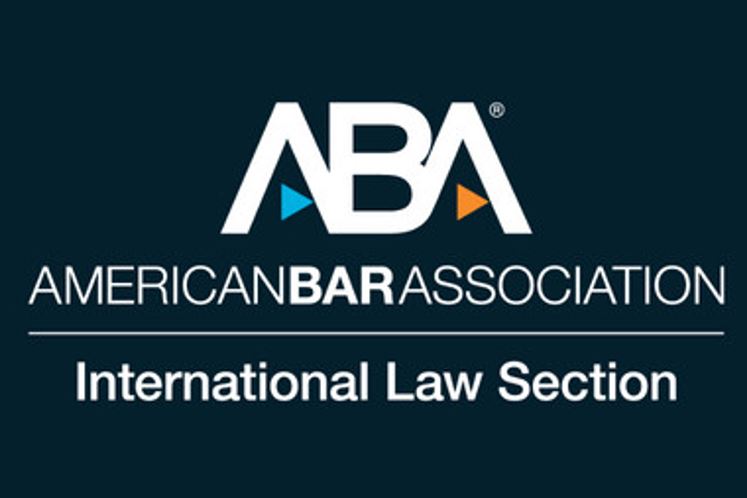I. Can allegations of corruption serve as a bar to jurisdiction of arbitral tribunals or admissibility of claims?
Cyprus legislation governing international commercial arbitration i.e., International Commercial Arbitration Law of 1987, L. 101/1987 (the “International Arbitration Law”), which has been drafted on the basis of the UNCITRAL Model Law on International Commercial Arbitration, expressly recognizes the autonomy of an arbitration agreement from the contractual agreement in which it is enshrined. As per the provisions of the International Arbitration Law, the nullity of the contractual agreement does not automatically result in the nullity of the arbitration agreement itself. As such, any corruption or illegality that may affect the parties’ contract will not necessarily affect the arbitration agreement and the jurisdiction of the arbitral tribunal to rule on the parties’ dispute.
Further, the International Arbitration Law expressly acknowledges the principle of compétence-compétence and the arbitration tribunal’s jurisdiction to rule on its own jurisdiction and matters concerning the validity or existence of the arbitration agreement. Hence, any allegation that corruption or illegality affects the parties’ agreement to submit their disputes to arbitration may be ruled upon the arbitral tribunal itself.
While the Cyprus legislation governing local arbitrations, Arbitration Law, Cap.4, does not include corresponding provisions, it is known that there have been local arbitrations where the arbitral tribunal has ruled on the parties’ disputes, including allegations of corruption.
Having said that, to our knowledge, the matter has not been explicitly raised and ruled upon by the Cyprus courts to date.
II. Can allegations of corruption affect the validity of an arbitral award?
Under Cyprus law, the annulment and recognition and enforcement of both international and domestic arbitral awards is subject to public policy considerations. The term public policy has been interpreted by Cyprus courts to include the fundamental principles that a society, at any given time, recognises as governing the transactions and aspects of life of its members, and provide the basis of the established legal order.
While there is no known precedent where the annulment or recognition and enforcement of an arbitral award has been refused on the grounds of corruption, courts in Cyprus are expected to annul or refuse the recognition and enforcement of an arbitral award should it be proved that it is affected by corruption. Cyprus is a party to a number of anti-corruption international treaties while in recent years it has faced serious cases of corruption domestically, which have shaped public policy and are expected to influence Cyprus courts’ approach on the matter. Having said that, according to common law precedent, which is normally adopted by Cyprus courts, contracts which have been procured by bribes are not unenforceable but voidable. This in turn may result in the Cyprus courts upholding an arbitral award which was issued on the basis of a contract that was procured by bribes.
It should be noted that in every case where an arbitration award is challenged on the grounds of public policy, courts in Cyprus, which is a pro-arbitration jurisdiction, should balance between the public interest of finality of arbitral awards and the public interest of combating illegality. Hence, it has been stated by the Supreme Court of Cyprus that challenging an arbitral award on the grounds of public policy is only appropriate in “exceptional” and “clear” cases.
III. In annulment or enforcement proceedings, can the court review the award and the merits to determine whether corruption or related offences affect the underlying dispute?
The general rule is that in annulment or recognition and enforcement proceedings, the Cyprus courts will not review the merits of the arbitral tribunal’s decision. The courts in Cyprus, which is a pro-arbitration jurisdiction, have consistently refused to examine the substance of arbitral awards and have limited their role to that of supervisory nature in annulment or recognition and enforcement proceedings.
However, as a deviation to this rule, public policy grounds, on the basis of which corruption or related offences may be invoked, may nevertheless provide the basis for annulling or refusing the recognition and enforcement of an arbitral award. Even in such a case though, the Cyprus courts will not review the decision of the arbitral tribunal on the merits and will limit their determination on the public policy matter raised.
IV. Can courts review corruption allegations which have not been raised in the arbitration?
An allegation of corruption can be reviewed by the Cyprus courts on the grounds of public policy which serve as one of the limited grounds of annulment and refusal of recognition and enforcement of an arbitral award. Cyprus courts review issues of public policy that have not been previously raised in the arbitration proceedings but, at the same time, will examine and take into account the reasons why the matter was not previously raised in the course of the arbitration proceedings. Hence, Cyprus courts are expected to review corruption allegations which have not been raised in the arbitration, provided satisfactory reasons are given for failing to raise the matter in the course of the arbitration.
A recent high-profile judgment on point is The Federal Republic of Nigeria v. Process & Industrial Developments Ltd [2023] EWHC 2638 (Comm) issued by the English High Court, where no corruption allegations were raised before the arbitral tribunal, but the award was challenged for being obtained by fraud and being procured contrary to public policy, among others, on the basis of allegations of corruption. It should be noted that, in the absence of local legislation and case law on a specific matter, Cyprus courts look for guidance in English case law which the Cyprus court have acknowledged as being of great persuasive authority as illustrating common law, which is expressly introduced in Cyprus law by virtue of section 29(1)(c) of the Cyprus Courts of Justice Law L.14/1960, as amended.
V. Do courts defer to the arbitral tribunal’s finding that no corruption acts were committed?
Where the arbitral tribunal has already ruled on allegations of corruption raised, the Cyprus courts are expected to defer to conclusion of the arbitral tribunal provided there is no fresh evidence on the matter and there is nothing suggesting that the arbitral award was secured as a result of collusion, improper process, bad faith or incompetence on the part of the arbitral tribunal.
It has been expressly acknowledged by courts in Cyprus that arbitration is not and does not constitute a pre-action stage but is a separate and independent procedure with its own procedural and evidentiary rules, similar to those of judicial proceedings, in which the arbitrator exercises quasi-judicial power. As such, Cyprus courts take the view that the findings of the arbitral tribunal should be generally respected and seldom be departed from.
Having said that, there is no known case law where the Cyprus courts have been asked to defer to an arbitral tribunal’s finding that no corruption acts were to date.
VI. Is there a standard of proof used by arbitrators and reviewing courts to assess the existence of corruption?
There is no fixed standard of proof under Cyprus law for arbitrators and reviewing courts in assessing the existence of corruption. However, it has been stated by the Supreme Court of Cyprus that challenging an arbitral award on grounds of public policy is only appropriate in “exceptional” and “clear” cases of violation of a given public interest.
Having said that, it is clarified that proving corruption under Cyprus criminal law, which requires proof “beyond reasonable doubt”, should not be required for these purposes.
VII. Which method do arbitrators and reviewing courts employ to establish evidence of corruption?
Although there are no specific standards or rules under Cyprus law to establish evidence of corruption, arbitrators and reviewing courts may employ the normal range of evidentiary rules seen in judicial proceedings. These include the use of circumstantial evidence, witness and expert testimonies, inferences from conduct etc.
At the same time, rules of evidence apply in a more relaxed manner in the context of arbitration, which may permit the use of other methods by arbitral tribunals to establish evidence of corruption. Having said that, it is unlikely in practice for arbitrators in Cyprus to undertake independent investigations or active steps to inquire into whether there has been any corruption where there no “signs” of corruption and the parties do not raise and present evidence to substantiate allegations of corruption.
In that regard, the “Toolkit for Arbitrators on Corruption and Money Laundering in International Arbitration” published by the Basel Institute on Governance and the Competence Centre Arbitration and Crime is known for providing useful guidance to arbitrators when dealing with corruption and other such illegal acts.
VIII. Are arbitrators seated in your jurisdiction bound by criminal proceedings on issues that could impact the underlying arbitration dispute?
It is a settled rule under Cyprus law, founded on common law, that a judgment in criminal or civil proceedings does not constitute admissible evidence of findings of fact or of the legal consequences of such findings of fact as against third parties or in proceedings between one of the parties and a third party. This rule is based on the notion of natural justice which requires a person to only be bound by a ruling where s/he was a party to the proceedings where the ruling was issued. As such, arbitrators in Cyprus would not generally be bound by the findings of criminal proceedings insofar as they are applying Cyprus law.
Having said that, there is no known case law on the matter to date.
IX. To what extent do they rely on or defer to findings from parallel criminal investigations?
Arbitrators in Cyprus will not generally rely on or defer to findings from parallel criminal investigations insofar as they are applying Cyprus law, given the autonomous nature of arbitration proceedings. Having said that, there is no known case law on the matter to date.
It should be noted however that evidence gathered from parallel criminal investigations may be adduced in arbitration proceedings where they will be independently evaluated by the arbitral tribunal for the purposes of the matters in dispute therein. It is clarified that criminal law is not arbitrable, and arbitrators cannot rule on the commission of criminal offenses or not; hence, the scope of any criminal investigation will necessarily differ from the scope of any arbitration proceedings.
X. Are remedies available when an arbitral tribunal rules that there is no evidence of corruption but subsequently a criminal ruling decides otherwise?
Under Cyprus law, arbitral awards may be annulled or judgments for the recognition and enforcement of arbitral awards may be appealed to the Cyprus courts where fresh evidence, which was not previously available, have become available and such evidence is credible and would probably have an important influence on the result of the case. Hence, what is decisive is whether the criminal ruling constitutes fresh evidence that could impact the arbitration proceedings in a material respect.
In that regard, it is noted that, according to common law precedent, which is normally adopted by Cyprus courts, contracts which have been procured by bribes are not unenforceable but voidable. This means that the Cyprus courts may uphold an arbitral award which was issued on the basis of a contract that was procured by bribes.
Having said that, the matter has not been raised and ruled upon by the Cyprus courts to date.
It is noted that an application for the annulment of an arbitral award under the International Arbitration Law may be filed within 3 months from the issuance of the arbitral award while an appeal of a judgment for the recognition and enforcement of an arbitral award may be filed within 42 days from the issuance of the judgment for recognition and enforcement under Cyprus Civil Procedure Rules.



